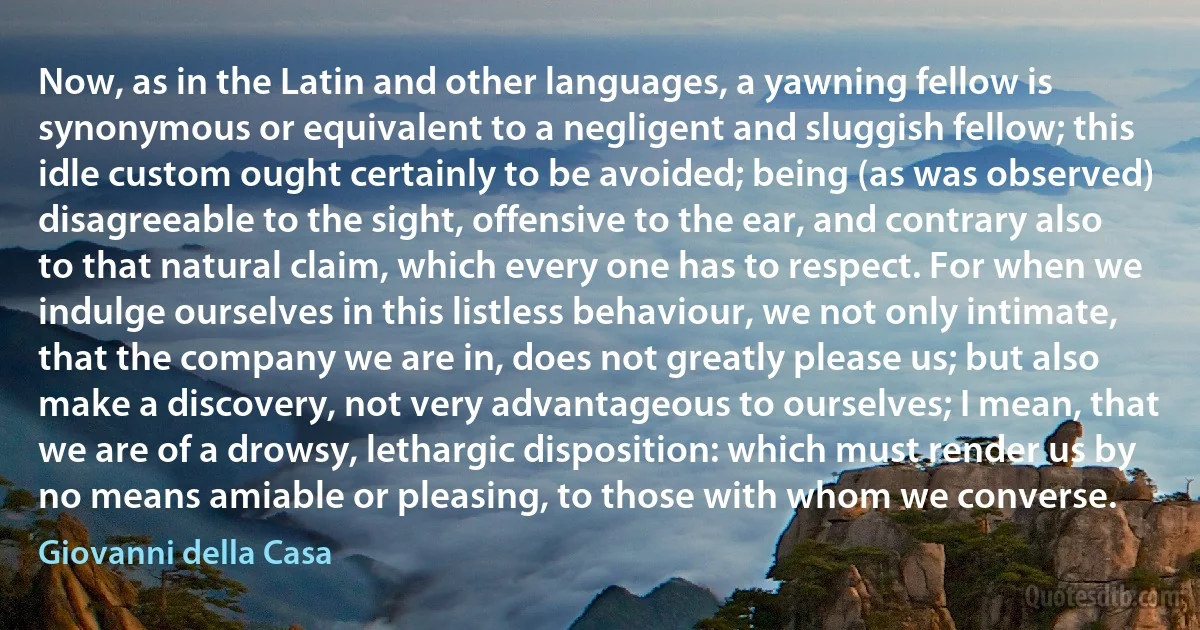Equivalent Quotes - page 10
Each of the most basic physical laws that we know corresponds to some invariance, which in turn is equivalent to a collection of changes which form a symmetry group. ...whilst leaving some underlying theme unchanged. ...for example, the conservation of energy is equivalent to the invariance of the laws of motion with respect to translations backwards or forwards in time... the conservation of linear momentum is equivalent to the invariance of the laws of motion with respect to the position of your laboratory in space, and the conservation of angular momentum to an invariance with respect to directional orientation... discovery of conservation laws indicated that Nature possessed built-in sustaining principles which prevented the world from just ceasing to be. There were fewer roles for the Deity to play...

John D. Barrow
It sounds rather strange to talk of an infinite universe still expanding. If we were certain that the curvature was negative, we might still, as in the case of positive curvature, replace the phrase "the universe expands" by the equivalent one "the curvature of the universe decreases." But if the curvature is zero, and remains zero throughout, what sort of meaning are we to attach to the "expansion"? The real meaning is, of course, that the mutual distances between the galactic systems, measured in so-called natural measure, increase proportionally to a certain quantity R appearing in the equations, and varying with the time. The interpretation of R as the "radius of curvature" of the universe, though still possible if the universe has a curvature, evidently does not go down to the fundamental meaning of it.

Willem de Sitter
In the dark ages before the invention of the electronic vacuum tube there were many legends of living statues and magic pictures. One of the commonest devices of sorcerers and witches was the model of an enemy which somehow embodied his soul, so that injury to the model would be reflected by suffering or death of the original... Idolatry, witchcraft and other superstitions are so deeply rooted and widespread that it is possible that even the most detached scientific activity may be psychologically equivalent to them; such activity may help to satisfy the desire for power, to assuage the fear of the unknown or to compensate for the flatness of everyday existence.

William Grey Walter
The effectiveness of authority as a means of control depends first of all upon the ability to enforce it through the use of punishment. In the two organizations which have been the models for classical organization theory, the situation with respect to enforcement is clear. In the military, authority is enforceable through the court-martial, with the death penalty as the extreme form of punishment. In the Church, excommunication represents the psychological equivalent of the death penalty.

Douglas McGregor
Aside from anarcho-libertarianism, there are two contending ideas of libertarianism. In its broad sense, libertarianism is equated with civil liberties and political rights-what we usually mean by democracy. Sweden, Japan, and the United States would thus be almost equally libertarian. In its narrow sense, libertarianism is equivalent to classical liberal democracy, adding to democracy the requirement of a free market. India would then be less libertarian than Japan; Israel less libertarian than West Germany. Theoretically, liberal democracies should have significantly less violence than socialist democracies, but both should have significantly less than nondemocracies.

Rudolph Rummel
When Zeus' son Sarpedon meets his fate, Zeus expresses grief for his dead son by causing blood to rain (Iliad 16: 459-461). In Egypt, the function of rain is replaced by the Nile which fructifies the soil. Accordingly, the Biblical Plague of Blood (Exodus 7: 19-25) is the Egyptian equivalent of the bloody rainfall in the Iliad.

Cyrus H. Gordon
The steam-engine having furnished us with a means of converting heat into a motive power, and our thoughts being thereby led to regard a certain quantity of work as an equivalent for the amount of heat expended in its production, the idea of establishing theoretically some fixed relation between a quantity of heat and the quantity of work which it can possibly produce, from which relation conclusions regarding the nature of heat itself might be deduced, naturally presents itself. Already, indeed, have many successful efforts been made with this view; I believe, however, that they have not exhausted the subject, but that, on the contrary, it merits the continued attention of physicists... The most important investigation in connexion with this subject is that of S. Carnot.

Rudolf Clausius
The statement is so frequently made that the differential calculus deals with continuous magnitude, and yet an explanation of this continuity is nowhere given; even the most rigorous expositions of the differential calculus do not base their proofs upon continuity but, with more or less consciousness of the fact, they either appeal to geometric notions or those suggested by geometry, or depend upon theorems which are never established in a purely arithmetic manner. Among these, for example, belongs the above mentioned theorem, and a more careful investigation convinced me that this theorem, or any one equivalent to it, can be regarded in some way as a sufficient basis for infinitesimal analysis. It then only remained to discover its true origin in the elements of arithmetic and thus at the same time to secure a real definition of the essence of continuity. I succeeded Nov. 24, 1858.

Richard Dedekind
'Constitutional' is just a real pip of a word. Positively rolls off the tongue. In fact, it's downright fun to say. 'Con-stit-too-shun-al.' It's the verbal equivalent of skipping down the street with an ice cream cone in your hand. It's like a semantic bag of Lays potato chips. You simply can't just say it once.

Paul Feig
Take the case of a famous problem which plays a great part in the history of Greek geometry, the doubling of the cube, or its equivalent, the finding of two mean proportionals in continued proportion between two given straight lines. ...if all the recorded solutions are collected together, it is much easier to see the relations, amounting in some cases to substantial identity, between them, and to get a comprehensive view of the history of the problem. I have therefore dealt with this problem in a separate section of the chapter devoted to 'Special Problems,' and I have followed the same course with the other famous problems of squaring the circle and trisecting any angle.

Thomas Little Heath
![[The] maid of honor - the unambiguous, grown-up equivalent of wearing best friend necklaces. (Emily Giffin)](https://cdn.quotesdtb.com/img/quotes_images_webp/79/emily-giffin-best-equivalent-572479.webp)


